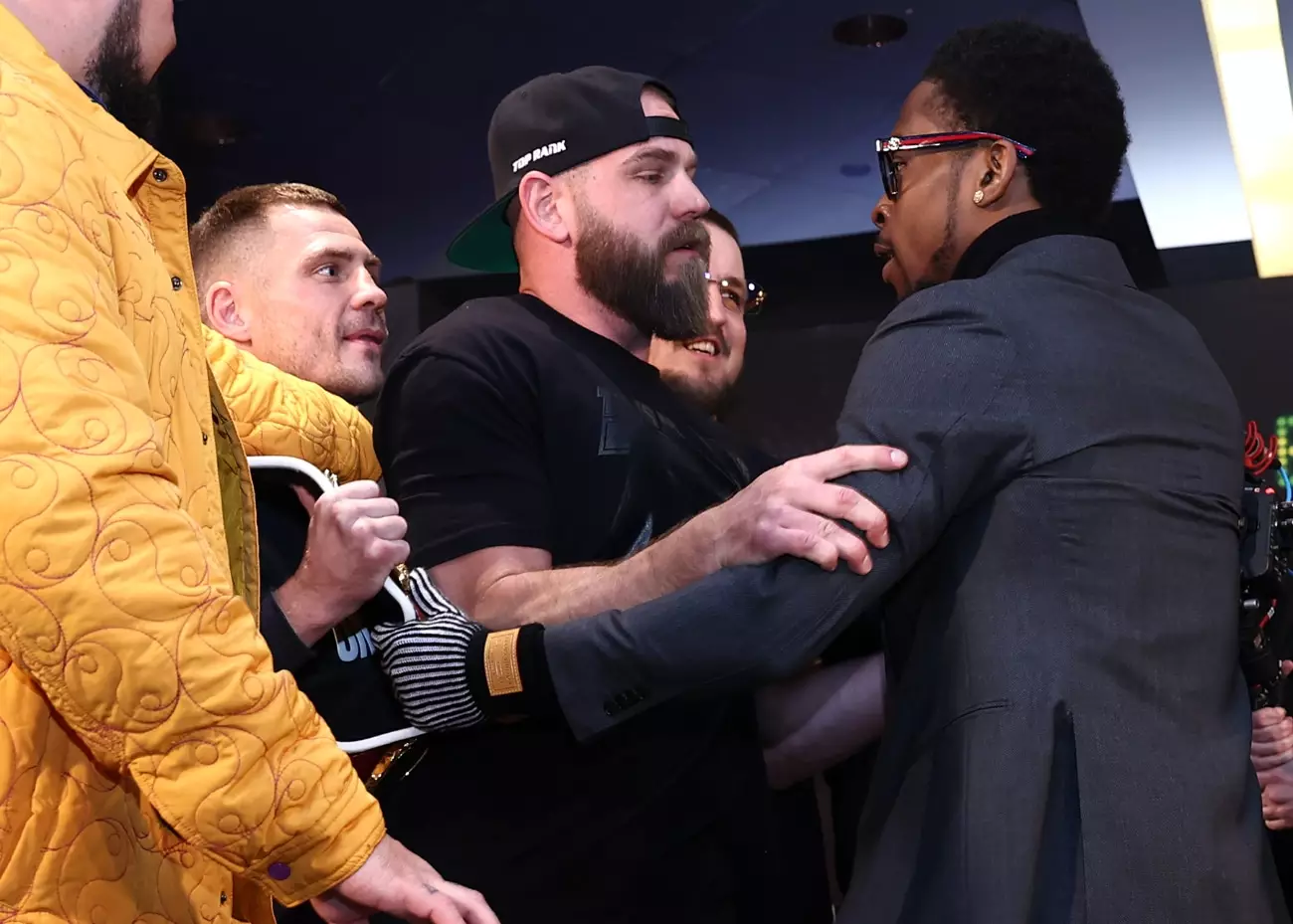In the realm of professional boxing, the lines between competition and personal vendettas can often blur, leading to dramatic confrontations that capture the attention of fans and media alike. The recent incident involving Keyshawn Davis and WBO lightweight champion Denys Berinchyk provides a vivid illustration of this phenomenon. Davis accused Berinchyk of racism, following an anonymous delivery of provocative items to his hotel room. This incident raises significant questions regarding accountability, the implications of social media, and the ethics of accusations in a world where proof often seems secondary to public perception.
Central to this controversy is Davis’s assertion that Berinchyk had sent him a box containing bananas and watermelons—a combination historically laden with racial connotations. While Davis fumed and pointed fingers at Berinchyk, the latter vehemently denied any involvement, stating that he was not the perpetrator of the prank. This lack of evidence did not deter Davis from making his claims, showcasing a troubling trend where accusations can dominate narratives, potentially ruining reputations without justification.
Davis’s approach exemplifies a growing issue in sports and broader societal discussions—a tendency to jump to conclusions based on circumstantial evidence rather than concrete proof. By labeling Berinchyk a “racist,” Davis not only tarnished Berinchyk’s reputation but also shifted public sentiment, creating a situation where guilt is assumed rather than proven. This was highlighted further when infamous boxer Teofimo Lopez appeared to mock the situation on social media, suggesting he might have been the one to instigate the prank. Such actions can be seen as a testament to the toxic environment lurking beneath the surface of competitive sports.
Lopez’s involvement is particularly notable. His snickering reaction suggests an understanding—or at least an acceptance—of the prank’s potential fallout. If Lopez did indeed orchestrate the incident, it raises questions about the motives behind such actions. Were they purely for amusement, or do they communicate a deeper-seated disdain for Davis? This playful yet harmful interference epitomizes the precarious nature of relationships in boxing, where alliances are fragile, and rivalries can easily erupt over trivial provocations.
The online reactions to Lopez’s post further amplify the gravity of the situation. Fans became embroiled in the drama, echoing sentiments of anger directed towards Davis as they pondered whether he was justified in his accusations. This digital discourse shows how quickly narratives can spin out of control, with social media serving as both a platform for discussion and a catalyst for misinformation.
Keyshawn Davis’s accusations against Berinchyk bring to light the broader issue of character assassination in sports. The danger in making baseless allegations is not merely personal; it affects the entire sporting landscape. Such accusations can lead to diminished opportunities, loss of sponsorships, and irreparable damage to an athlete’s career. In a sport where an athlete’s reputation is often intertwined with their success, unwarranted public labeling can have dire consequences.
Furthermore, Davis’s choice to attack Berinchyk on grounds of race without proof suggests a troubling desensitization to the gravity of such claims. It reduces a serious dialogue about racism in sports to a mere tactic for psychological warfare, detracting from genuine conversations about discrimination and prejudice. The ethics of accusations should compel fighters to hold themselves to a standard that encourages integrity rather than one that promotes divisiveness and reflection of negative stereotypes.
The incident involving Keyshawn Davis and Denys Berinchyk serves as a stark reminder of the responsibility that comes with being a public figure in the sporting world. Individuals must weigh their words carefully, recognizing the far-reaching implications that accusations can have. The culture surrounding competitive sports should evolve to prioritize evidence-based discussions while fostering an environment of accountability.
As fans and participants in this vibrant yet volatile arena, there is an imperative need to uphold the integrity of the sport and ensure that actions are backed by fact, not fiction. Perhaps it is time to rethink how narratives are constructed and scrutinize the motives behind them, ensuring that the dignity and character of all athletes are protected. The path forward should emphasize clarity, respect, and a commitment to truth, steering the sport toward a more honorable foundation.

